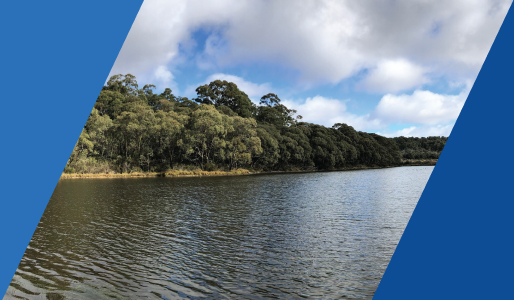Processing of wild deer
Under the Wildlife Act 1975, wild deer can be harvested in a number of settings and there are several ways that carcasses can be used.
Additional requirements may apply to deer carcasses taken for commercial processing under the Meat Industry Act 19983 or under interstate legislation.
Commercially harvested wild deer can now be processed in a PrimeSafe licenced meat processing facility for human or pet consumption following changes made in March 2018.
Recreational hunters can now have wild deer processed in an unlicensed meat processing facility following further changes made in December 2019.
Commercial harvesting of deer from private and public land (wild, non-farmed)
All deer (except Hog Deer) are unprotected on private property in Victoria under certain conditions.
A landowner, or person authorised by the landowner, may humanely destroy deer (except Hog Deer) on their property.
More information, including what you must know before destroying deer on private property, is available from the Game Management Authority (GMA). Visit the GMA website or call 136 186.
Commercial harvesting of deer taken on public land can only be undertaken when contracted by a public land manager.
Deer carcasses can only be sold for human consumption if the person harvesting the deer is approved by PrimeSafe as a Game Meat Field Harvester and the deer carcass is processed by a Game Meat Processing Facility licensed by PrimeSafe for commercial processing for human consumption.
Alternatively, deer carcasses can be taken to a facility licensed by PrimeSafe for commercial processing for pet food at a Pet Meat Processing Facility or inedible at a Rendering facility.
Processing of deer meat for commercial purposes
As a Game Meat Field Harvester, in addition to ensuring that you have the appropriate permissions to harvest wild deer from the public land manager or landowner, you should also be mindful of food safety standards that may apply if you want to supply deer carcasses to a commercial processor.
These requirements will differ depending on the end use of the carcass and whether it will be processed in Victoria or interstate.
Further information about commercially harvesting and processing wild deer can be found on the PrimeSafe website or by calling PrimeSafe on (03) 9685 7333
Processing of deer meat harvested by recreational hunters
Recreational hunters holding a relevant game licence from the GMA may take wild deer from private land (with the permission of the landowner) or from public land in areas where deer hunting is permitted, for human consumption, provided it is not for the purposes of sale.
Recreational hunters can have deer carcasses processed by an unlicensed meat processing facility for human consumption purposes, provided it is not to be sold. These facilities are not licensed by PrimeSafe and are not regulated for safety or hygiene.
Recreational hunters should ensure that any unlicensed meat processing facility used to process deer carcasses has sufficient practices in place to manage food safety and hygiene.
Deer carcasses taken by recreational hunters cannot be processed in any meat processing facility that processes game or other meat into products that are sold for human consumption.
A licenced game hunter can share their processed deer meat with friends and family , however it cannot be sold. Anyone in possession of wild deer meat should ensure that the deer was taken and destroyed by a licenced game hunter or other person authorised under the Wildlife Act 1975.
Supplying wild deer to be sold in Victoria for human consumption
Wild deer intended to be sold for human consumption will need to be harvested in accordance with the Australian Standard for the Hygienic Production of Wild Game Meat for Human Consumption (AS4464:2007).
Only a person approved by PrimeSafe as a Game Meat Field Harvester can supply carcasses or meat from wild deer to a PrimeSafe licensed game meat processing facility.
A game meat processing facility may be a vehicle, a fixed or mobile field depot, or a facility that processes or packages game meat products for human consumption.
Further details on how to apply for PrimeSafe approval can be found on the PrimeSafe website or by calling (03) 9685 7333.
Vehicles used in the harvest, storage, processing or transport of wild deer for human consumption, including game harvest vehicles and mobile field depots, will also need to be licensed by PrimeSafe unless they are already licensed for this purpose in another state or territory.
Supplying wild deer to be processed for pet food or inedible rendering
Wild deer can be taken to a PrimeSafe licensed facility to be processed for pet food or for inedible rendering. However, it cannot be sold by Game Licence holders for this purpose. No food safety requirements apply to the harvesting or transport of wild deer used for rendering
Supplying wild deer to an interstate facility for processing
The Victorian Government recognises that many game businesses operate across state borders.
If you are harvesting wild deer in Victoria to supply to a processing facility in another state, you should contact the food safety regulator in that jurisdiction to understand their regulatory requirements.
Harvesters operating or supplying vehicles that are licensed in another state do not need to be approved by PrimeSafe. However, you should contact the food safety regulator in that jurisdiction to understand their regulatory requirements.
Page last updated: 2 September 2025
